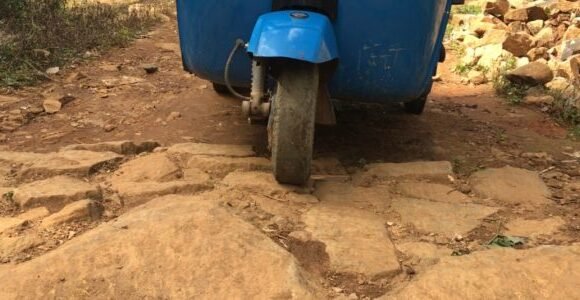
Looking to Mannar for Reconciliation An Oasis that Connects Hearts
SARATH MANULAWICKRAMA
In Mathota, the coastal line yields pure white pearls, the harbor is connected to the beginning of Buddhist civilization of Sri Lanka, the port is written in history as the place from where the sacred sapling of Sri Maha Bodhiya tree was brought to the island.
In Mathota, the coastal line yields pure white pearls, the harbor is connected to the beginning of Buddhist civilization of Sri Lanka, the port is written in history as the place from where the sacred sapling of Sri Maha Bodhiya tree was brought to the island.
Mathota, known as Mannar today, is the district where Our Lady of Madu church and the sacred Hindu temple, Thirukeshwari Kovil, is located. This land is important for Muslims too. The ocean is a resource that connects the people of various communities.
‘‘Tamil families in Mannar fish. They also dry the fish as an industry. Muslim businessmen sell dried fish, Sinhalese people buy them. There is no conflict. We are engaged in business with peace,” said S.A. Fowmy, a trader in Mannar market.
Fowmy’s story reflects the economic and social reality of Mannar. The area is Tamil and Muslim dominated while a small minority of Sinhalese also live there. Religion wise, Tamil Christians, Tamil Hindus, Muslims and Buddhists live scattered in the district. The town in Mannar Island reflects this diversity perfectly. Fishery season with bountiful harvest is about to begin. All traders at the fish market have beaming smiles on their faces. Fowmy is among them and his dried fish stall always serves the locals. While there aren’t many souvenirs to take home from Mannar, there is always true Mannar dried fish. Many sellers store various types of dried fish. Most of them are Muslims.
“We have no racist divisions. Everyone is needed in society. All of us live in peace and we have good trade. We buy from Tamils, sell to Sinhalese and live with all communities in peace.”
Thalpavudu beach produces most of the dried fish in Mannar Island. Many Sri Lankans visit Thalapavudu to buy quality dried fish. Wholesale traders from Negombo and Colombo often visit Thalpavudu to buy fish. The fish harvest also goes to Vavuniya market. The majority of the fishermen in Mannar are young people. The war time restrictions on fisheries have now been fully removed. Therefore, many school leavers like to select fisheries as their livelihood or business, instead of government jobs. They sometimes earn the monthly salary of a public employee in two days.
Susikaran is a student from Jaffna University. We met him on the beach.
“When I come home from university for vacation, I go for fishing. It is one of the best ways to earn a good income. We don’t have other job opportunities in Mannar. We contribute to the economy through fisheries. We add value to our production. Our harvest is consumed by people around the island without ethnic divisions. They help to end hunger of the people of all communities and provide nutrition to all of them. Currency also has no racial or religious boundaries. Everyone is needed in Mannar society. People are connected by fish, dried fish and money,” Susikaran said.
Twenty-three years old S. Jesikaran expressed the following views. “We have no other employment here. There are few factories and other private sector employers. However, we can earn the salary of a public employee within a day sometimes. Some of us are educated sufficiently for employment in public sector, but prefer fisheries. I go fishing towards India for about 20, 30 kilometers. Mannar is peaceful these days. We love travelling in other areas and do so when we have chance. We are happy now.”
Many local tourists returning from Jaffna were visiting Mannar. They too were buying dried fish at Thalpavudu beach and fish at Mannar fish market. We spoke to some of them. They said they had travelled from areas like Matara, Kegalle and Kurunegala.
H.M.C. Herath was from Malsiripura and we met him at M. Shifadeen’s stall. He remarked, “Mannar dried fish has been famous since ancient times. I came here on my way from Jaffna to take some dried fish for my neighbors. I found very good products.”
Shifadeen speaks Sinhala eloquently and talk about the products available for sale. “We don’t lie. We are always here. We have many returning visitors. We invite all to visit Mannar. No one needs to be afraid. Tamil and Muslim people live here in peace. Sinhalese people come to buy dried fish. We welcome them cordially and talk to them. Irrespective of whether you buy or do not buy from us, we treat all of you very hospitably,” he said.
This article was originally published on the catamaran.com







